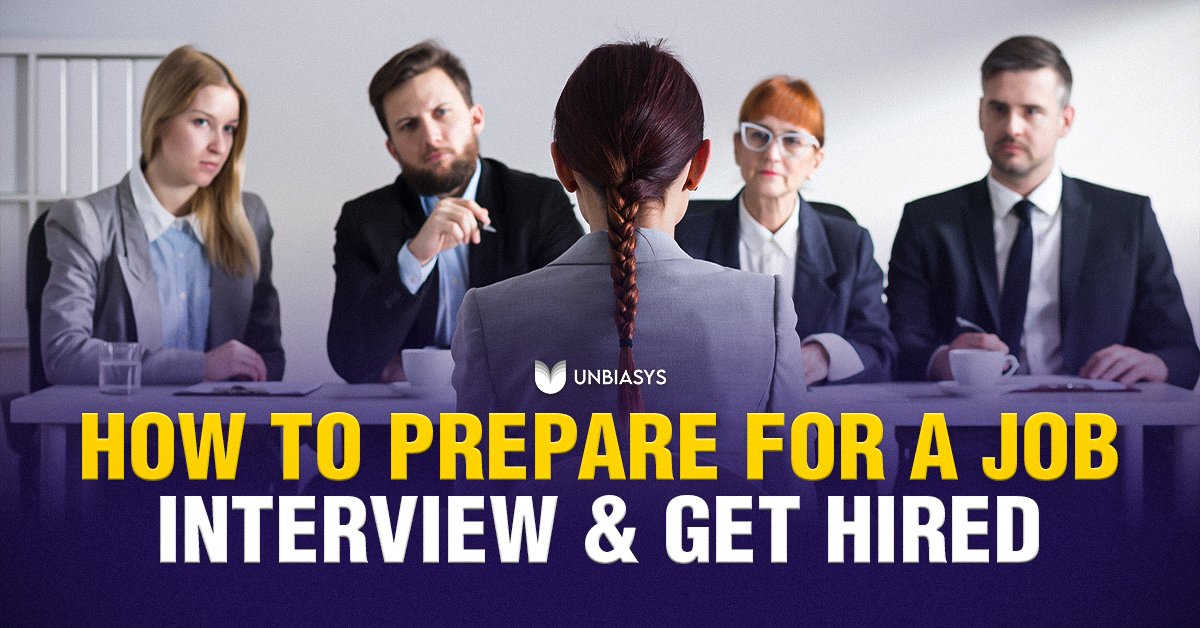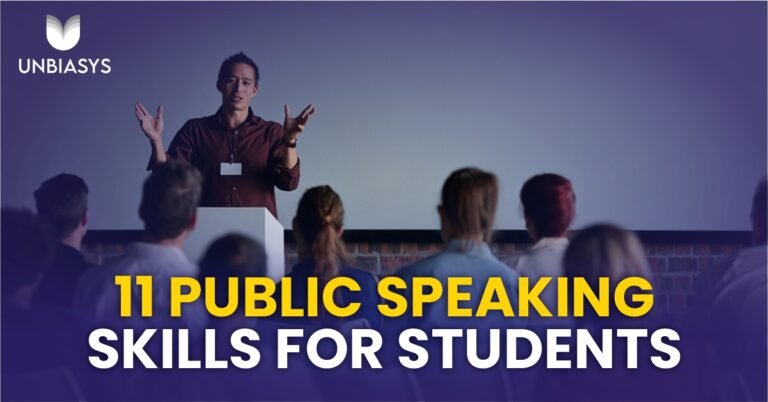Table of Contents
Are you apprehensive about an upcoming job interview? This post is jam-packed with job interview preparation tips that will ensure your success!
Interviewing for a job may be daunting. And job interviews are fraught with formality, emotion, and various issues ranging from how to dress to how to handle sensitive subjects and circumstances.
Developing a strategy for preparing for job interviews is critical too. Thus, the job interview is almost certainly the most vital stage in your job search journey; it is your most excellent chance to show a hiring manager or recruitment agency that you are the most qualified applicant for the position.
Make the most of your time in front of hiring managers by following these recommendations on how to prepare for a job interview. The following suggestions dealing with how to prepare for an interview will assist you in preparing for (and following up on) your interview and leaving a favourable impression on potential employers.
21 Interview Preparation Tips
“The way to get started is to quit talking and begin doing.”
Walt Disney
From crafting the perfect interview answer to effectively navigating tough interview questions, these great suggestions may offer you an edge throughout the interview process and help you obtain the job you’ve always wanted. The guidelines below explain how to prepare for a job interview and what you should and should not do during an interview.
Whether you’re looking for a management position or a sales one, the ideas and methods below will help you master how to prepare for a job interview along with some of the most feared interview questions and get the job of your dreams.
The following are some of our best interview preparation tips to assist you in acing your critical job interview (in sections):
- How To Get Ready For An Interview – Some Pointers On Interview Preparation
“It’s not whether you get knocked down, it’s whether you get back up.”
—Vince Lombardi
1. Completely comprehend the job description
In some ways, interview preparation starts the moment you find a job opportunity that interests you. While you do not get a cheat sheet detailing the interview questions, you receive a very comparable job description. The hiring manager details the kind of individual the company is looking for in the job description, from the skills necessary to do the job to the prior work experience they need. Consequently, although it cannot prepare you for every interview question, it may give you a sense of what a candidate is looking for.
2. Conduct some research on the business
Before attending your interview and speaking with the hiring manager, research the company and learn all you can about it. The information you get will assist you in developing a better understanding of the company culture and goals and allow you to adapt your answers to the interview questions requested.
3. Determine who will conduct your interviews
Additionally, if possible, do a background check on your interviewer. With this knowledge, you may make remarks on their baseball passion or congratulate them on their professional achievements, for example. Knowing a little about the individual conducting the interview may help relieve tension, show your enthusiasm for the position, and simply amaze them with your range of knowledge.
4. Familiarise yourself with typical interview questions
Naturally, the goal of an interview is for the employer to learn more about you, and answering interview questions will consume most of your time during your visit. While you cannot predict every question asked during the interview, you can prepare for some more frequent ones.
5. Create a list of relevant interview questions
They invite you to an interview to learn more about you and decide if you are a good fit for them; yet, the discussion is also about you. Throughout the interview process, make a point of asking a few questions of your own. Not only will this help you decide whether or not this is a place you want to work, but companies expect you to ask questions during the interview. At the end of the meeting, they often remark, “So, do you have any questions for me?”
6. Get a Good Night’s Sleep
While it is generally accepted that sleep deprivation has a detrimental effect on work performance, it has also been shown to harm job interview performance. The night before, unwind and relax early in the evening, and avoid late-night coffee or heavy alcohol use, which may keep you from going asleep. Additionally, avoid using your phone or computer an hour before bed to prevent your screen’s blue light from impairing your ability to sleep.
7. Arrange for an earlier arrival than usual
Our suggestion is to arrive an hour before the interview and then sit at a nearby café or restaurant to prepare for the interview. This way, you may calm your nerves, decrease your pulse rate after your journey, gather your thoughts, read through your notes one last time, and just ensure that nothing unexpected occurs and interferes with your big day.
8. Print five-six copies of your resume and cover letter on paper
To prepare for your interview, print and bring five copies of your resume and cover letter. While physical copies are not always needed, they are always beneficial to have on hand. Additionally, why not show them your preparedness? Further, if a group interview is anticipated, having five copies ensures that you have enough physical copies of your cover letter and resume to give to the other interviewers.
9. Dress appropriately for an interview and bring along the necessary things
Along with physical copies of your resume and cover letter, you should bring a few other things. Carry a pain reliever in your purse or briefcase in case you have a pre-interview headache, as well as napkins and wet wipes to dab away sweat from your forehead and hands before the interview. Bring a few pencils required to sign any documents, as well as your phone charger in case anything goes wrong.
10. Avoid excessive coffee consumption!
If caffeine is necessary to get you through the morning, you should avoid missing it. Simply be cautious not to overdo it. Overindulging in coffee can increase your heart rate, your anxiousness, and your perspiration. Additionally, you may need restroom access at one of the most inconvenient periods of your working life. Please restrict yourself to a tiny cup during the interview and reserve any other cups for afterwards.
- Interview Techniques And Ideas For Success
“Choose a job you love, and you will never have to work a day in your life.”
—Confucius
11. With a pleasant smile and a pleasant demeanour, greet everyone you meet
While you are there to make a favourable impression on the interviewer, you should not overlook the company’s other employees. Give everyone you meet a pleasant smile and a nod or wave, whether it’s the front desk receptionist or a business analyst you pass on your way to the interview room. Not only may these people affect your employment prospects, but they will almost certainly become your future colleagues.
12. Begin with a compliment
When you first shake hands with your interviewer and settle down at the table with them, begin the discussion with a kind comment. For instance, you might remark, “Many thanks for the opportunity; I was looking forward to this particular interview!” First impressions are critical, and this will convey to them positively and directly your enthusiasm, optimism, and love for the job. Additionally, it may result in follow-up questions, which you will undoubtedly ace given your extensive research on the company and understanding of the job description beforehand!
13. Create a comprehensive list of everything
Taking notes in a bit of a notebook during a job interview is one of the best interview tips you can get, and it is something that everyone should do. Demonstrating your work ethic and organisational abilities while taking notes on what the recruiting manager says may get you some brownie points.
Additionally, it’s a simple way to take down whatever information they give, which comes in handy while you’re asking the questions. Further, you should prepare your notebook before the interview by filling it with questions you want to ask, points you wish to make, names of individuals who may serve as references, and noteworthy achievements from your academic days or prior work experience.
14. Be Conscious of Your Body Language
While your lips may be replying to the inquiries, other parts of your body are conversing as well. Make direct eye contact with the interviewer before and during the interview to seem honest and confident. Before and after the consultation, give a firm handshake. When responding to their inquiries, ensure that your words are appropriately spoken and that you sit up straight to seem professional.
15. Be Prepared for Their Appointments Scheduled
Human resources personnel and recruiting supervisors will very likely have reservations and concerns about you, just as they would about any other candidate. Recognise your shortcomings and anticipate any problems they may have about hiring you. You’ll be able to interact with it more effectively in this way if and when the chance presents itself.
- Tips on Answering Interview Questions
“Keep your face to the sunshine, and you cannot see the shadows.”
—Helen Keller
16. Don’t Vilify Your Former Employer
Negatively referring to your former employer is always disrespectful, regardless of how justified you believe your stance is. It shows disloyalty, which may make them reluctant to hire you in the future. Additionally, it raises questions about your prior situations and may give them the idea that you should avoid a potential problem at all costs.
17. Orienting Your Answers to Interview Questions Using the STAR Method
Behavioural interview questions are one of the most frequent kinds of questions you’ll be asked during your interview; they’re intended to ascertain how well you’d act in specific circumstances based on your previous responses to similar events. During your appointment, you will be quizzed on your behavioural characteristics. If you want to answer them correctly consistently, there is an excellent way to memorise: the STAR method.
The term STAR stands for Situation, Task, Action, and Result, and it may help you craft a response to their question that is customised to their preferences. In practice, it looks like this:
- To begin, imagine a challenging situation you’ve encountered before.
- Give an outline of the responsibilities for which you were accountable.
- Indicate the actions you took to address the problem in detail.
- Consider the ramifications of your conduct.
Also Read: 31 Key Phrases Guaranteed to Make You More Influential Employee at Work
18. Make no inquiries regarding pay or perks
Inquiring about your pay, benefits, bonuses, or anything else of that kind, you always seem a bit presumptuous whenever someone approaches. Save these questions for a follow-up email later in the interview process, or check the company’s job description to see if there is anything more you need to know about the position. When the time comes for them to offer you the job, you will have the chance to ask any last questions about the pay and benefits package before accepting their offer.
- After-interview follow-ups.
“If opportunity doesn’t knock, build a door.”
—Milton Berle
19. Thank the person who helped you after the interview
After waiting for a day or two after a job interview to write a thank you letter, follow up with the hiring manager (HR) through email. Indicate that you appreciate their time and are crossing your fingers for a favourable response. Maintain a pleasant and enthusiastic demeanour that is not intrusive. Additionally, it may serve as a friendly reminder to them, reminding them that you are still there and awaiting their selection without being disrespectful.
20. Be prepared for any further interviews and seek input from others
While you may have prepared well for this interview, do not let up just yet. Your interview process may include two or three interviews, each of which is often more challenging than the last.
While following the interview rules stated above will certainly improve your chances of getting the job, it is conceivable that you may not be granted the position this time around for several reasons. Instead of guessing what could have gone wrong, just ask! Send them a polite email asking about their thoughts and ideas for future improvements, and be sure to include their advice the next time around.
21. Allow No Discouragement to Overtake You!
The interview process may be challenging, and it’s all too easy to get disheartened throughout it. Even if you get a negative response, try not to let it consume you. Because most people must go through several interviews before being given a position, you must continue pounding the pavement until you get your ideal job. If you continue to do an excellent job and adhere to our successful interviewing rules, you will almost definitely get a favourable answer promptly.
That concludes on how to prepare for an interview supported with tips and methods on how to prepare for an internship interview; we hope they prove helpful in your subsequent interviews! And we hope that the following information will assist you in preparing for a job interview (and following up on) your interview while ensuring that you make a favourable impression on potential employers.










